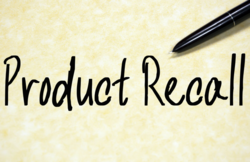
Businesses are legally required to report any known dangers related to the products they manufacture, import, distribute, or sell. Businesses that fail to do so intentionally place the health and safety of consumers in jeopardy. When businesses violate their duty of care to consumers, victims have a right to pursue legal recourse to compensate them for the injuries and wrongful deaths that occur.
Obligations Under the Law
Businesses are obligated to notify the Consumer Product Safety Commission (CPSC) of products that are defective and that could cause serious injury or harm, including death, to consumers. They are also required to notify the CPSC of products that fail to meet applicable safety standards, cause wrongful deaths, and are involved in any “near misses” or choking incidents such as swallowing marbles or ingesting latex balloons.
The law also requires manufacturers and importers to notify the CPSC of certain types of lawsuits that are filed against them for alleged violations of consumer safety. When businesses fail to adhere to these requirements, they can face civil lawsuits that hold them liable for damages and criminal penalties that can include fines and imprisonment.
Timeline and Procedure
Businesses are required to notify the CPSC promptly. The law requires them to notify the CPSC with 24 hours after receiving reportable information that there is a hazard with a particular product. The caveat to this is that businesses are allowed to properly investigate claims prior to reporting. They can conduct an internal investigation for up to 10 business days to determine the validity of the claim before filing their report.
When a business files a report, it is possible a recall will be issued but it is not guaranteed. When the CPSC receives a report, they will investigate to determine if corrective action is necessary. If the defective product does not pose a serious risk to consumers, the CPSC might take other actions, like revising the wording on labels for future production.
Protection Against Retaliation
Individuals working for companies that are producing, distributing, or retailing dangerous products are protected by Whistleblower laws. These individuals cannot be fired or punished for reporting dangerous and defective products to the CPSC.

